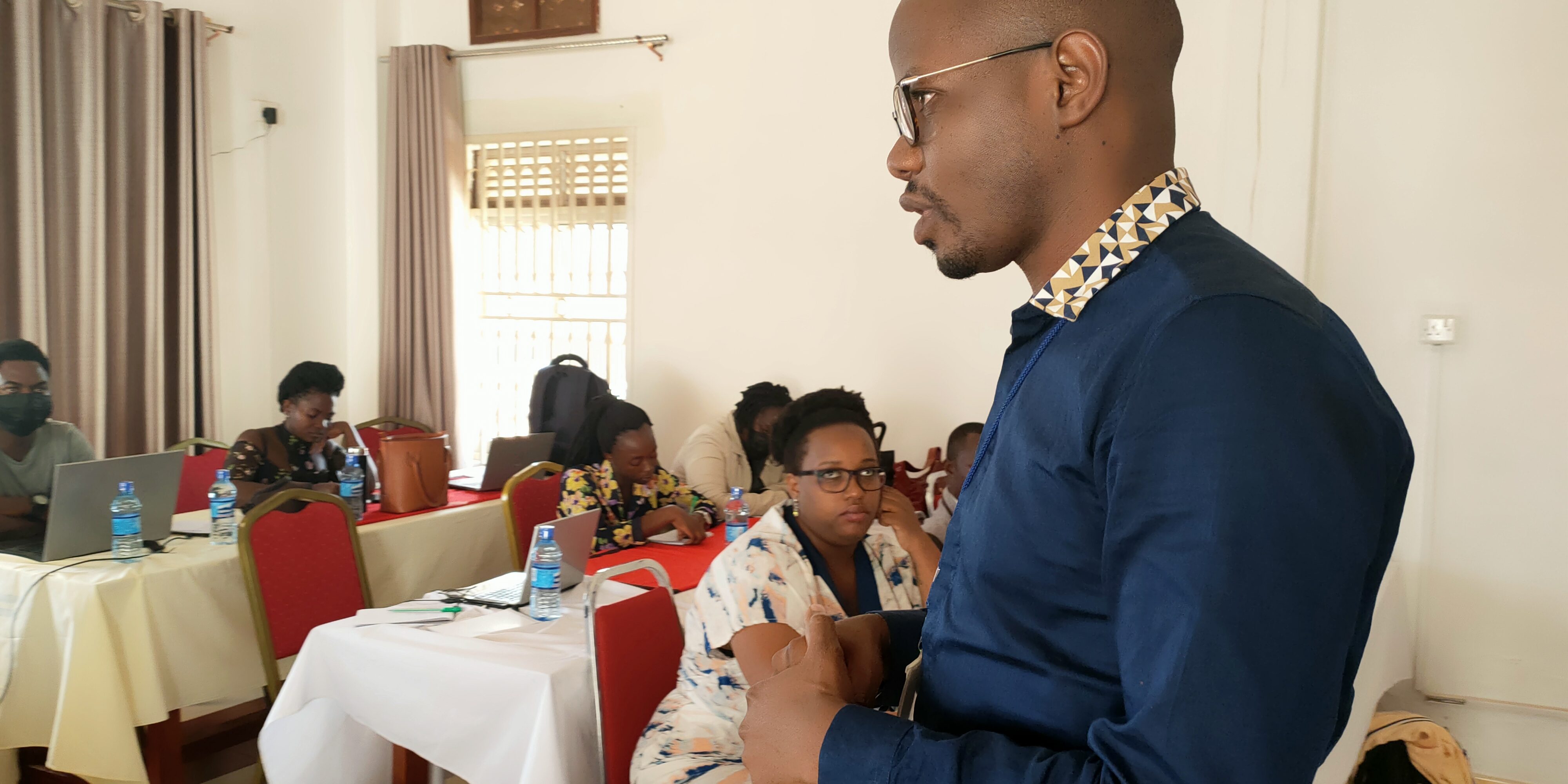By Malik Fahad in Masaka
Health workers plead for more uptake of HIV/Aids prevention measures.
Researchers and health workers in greater Masaka region have embarked on a campaign to mobilize people to increase uptake of HIV/AIDS prevention methods.
Led by Dr. Jonathan Kitonsa an HIV/AIDS Researcher at Medical Research Center (MRC) Masaka center, says that though there have been some strides in fighting the spread of HIV among communities there is a need to mobilize people to take up available measures to reduce on the spread of the virus.
While addressing reporters during a science café organized by Health Journalists Network Uganda (HEJNU), Dr. Kitosa said there has been a reduction in the number of people contracting HIV but this can be further reduced if people embraced the tested prevention measures since uptake is still low.
He said that though research showed that safe male circumcision can prevent the spread of the virus to up to 60% but surprisingly a few people at least 45 % have embraced it saying that if the country is to attain the 2030 target of 95-95-95 as they did on 2020 target of 90-90-90 the uptake level must be worked on.
“Some people still have negative perceptions towards circumcision and uptake of other prevention measures our focus should now be at increasing uptake of these measures which has proved to be working, the attitudes of behavior compensation (people tend to engage into risky behavior because they are circumcised) research proved it to be wrong since in communities where they practice circumcision the HIV/AIDS prevalence rates in these areas is indeed low” he added.
He further said that research also proved that uptake of drugs such as PEP and Prep can also help in the prevention of the spread of the virus through just like the existing methods such as condoms use, and being faithful to one partner but still their uptake is low.
Dr Bernah Nagirinya another scientist from TASO Masaka says that people are forgetting about the existence of IHV/AIDs but it’s still a threat asking people to be cautious and continue taking their medication to avoid being affected by the occurrence of drug resistance among HIV/AIDS patients.
Nagirinya said that the situation has been worsened by the covid19 pandemic where a big number of the people living with HIV/AIDS in the region got challenges with accessing treatment.
Dr. Nagirinya has however asked mothers living with HIV/AIDS to always go for antenatal care services so that the health workers can save the baby from contracting the virus.
“We tried making follow-ups on some of our clients at TASO during the lockdown but somewhere coming from distant areas and accessing them was hard since we lacked their contacts, we could use to reach them so we ended up losing some in the process, but we have started engaging them and asking them to continue taking the treatment as they used to do before the lockdown” she added.
She said that TASO is working closely with other partners to ensure that the country can achieve the target of undetectable `un-transmittable asking members of the public to embrace the available treatment and prevention programs.
Masaka district HIV/AIDS Focal person Olivia Nakanwagi said Masaka is one of the districts in the central region with the highest HIV/AIDs prevalence rate standing at about 11.7 lower than Kalangala district that stands at about 18.7%.
She said that Masaka is working with partners such as Rakai Health science program to conduct safe male circumcision asking people in Masaka to seek these services at Kyanamukaka health center iv, and Kiyumba health center iv for these services.
Cate Nalongo one of the people living with HIV/AIDS and also a person living with a disability said they are embarking on ending stigma among people living with disability and HIV/AIDS though she says that they pPWDs still struggle to access treatment especially those with hearing impairments since some health workers can’t communicate with them.
“Through our association, we try to reach out to our colleagues to access HIV treatment and we have created groups in our communities and members in these groups help each other to take their medicine in time” she added.

